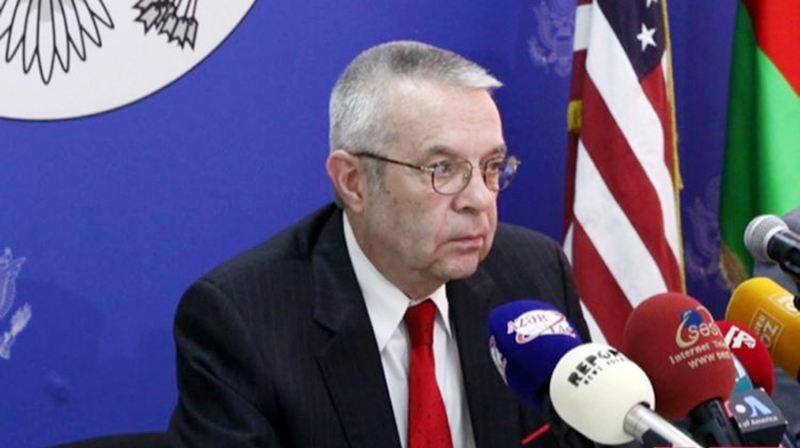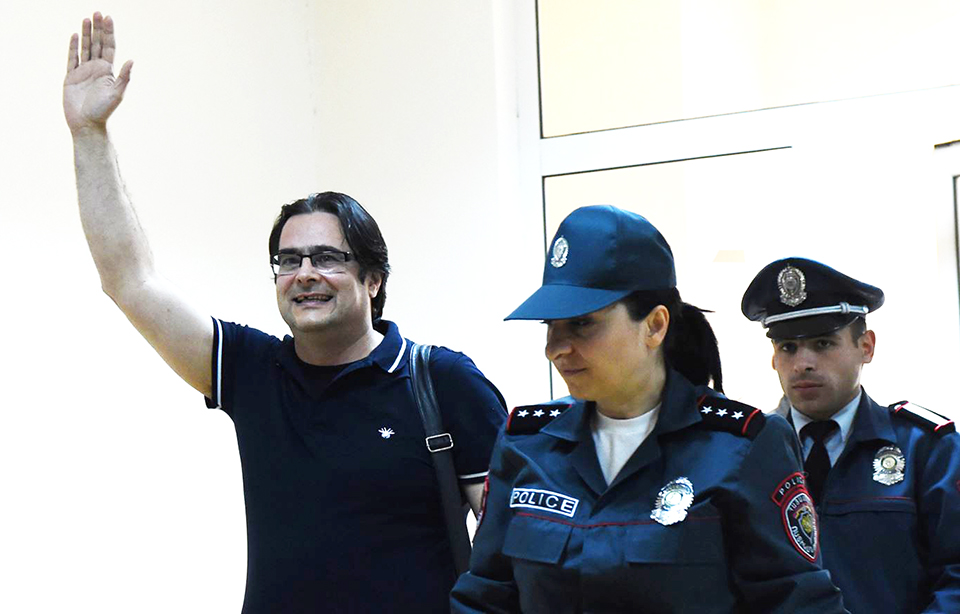YEREVAN (RFE/RL) — International mediators hope that Armenia and Azerbaijan will resume soon their high-level negotiations on a peaceful resolution of the Nagorno-Karabakh conflict, a senior U.S. diplomat said on Monday.
“We hope that in the near future — not months away but in the near future — the two foreign ministers will be able to meet together in Moscow or perhaps elsewhere to prepare the ground for the [Armenian and Azerbaijani] presidents to meet,” Richard Hoagland, the U.S. co-chair of the OSCE Minsk Group, told reporters in Yerevan.
“It is time to begin negotiating again,” he said. “We cannot allow violence to be the solution to this long-standing issue. Violence is not an answer.”
Hoagland arrived in Armenia together with fellow mediators from Russia and France heading the Minsk Group. They held meetings with President Serzh Sarkisian and Foreign Minister Edward Nalbandian on Monday and were due to travel to Nagorno-Karabakh on Tuesday.
Official Armenian sources said both sides agreed on the need to implement last year’s Armenian-Azerbaijani agreements aimed at bolstering the ceasefire regime in the conflict zone. Those call for the deployment of more OSCE observers and international investigations of armed incidents on the frontlines.
Azerbaijan formally notified the OSCE headquarters in Vienna earlier this month that it will not agree to such a deployment “in the absence of withdrawal of the Armenian troops from the occupied territories.” Baku has also been reluctant to allow OSCE investigations of truce violations along the Karabakh “line of contact” and the Armenian-Azerbaijani border.
Armenian leaders have repeatedly said that implementation of these confidence-building measures is necessary for renewed negotiations on a peaceful settlement proposed by the U.S., Russian and French mediators. Their so-called Basic Principles of a Karabakh peace were first put forward in 2007 and have been repeatedly modified since then.
Asked to comment on reports that the existing, most recent version of that framework accord was drawn up by Russia, Hoagland said: “That’s a hard question to answer … The plan on the table right now is in no way radically different from plans in the past.”
“Which specific individual or country sat at the table late at night and wrote this plan? Well, I’m not going to comment on that. But I will say that this is a very good, internationally approved plan. The OSCE supports it and the co-chairs and their governments support it,” added the diplomat.
Russian Foreign Minister Sergey Lavrov said on March 6 that the conflicting parties broadly agree on the proposed settlement envisaging Armenian withdrawal from “districts around Karabakh” and a future decision on Karabakh’s status which would “take into account the opinion of the people living there.” But Lavrov also also admitted that they are still far apart on “two or three” elements of this peace formula. He did not to disclose the sticking points.
Hoagland also declined to give key details of the “very comprehensive” peace plan. “In diplomacy, it’s like in a card game,” he explained. “When you’re holding cards you don’t put all the cards on the table for everyone to see.”









